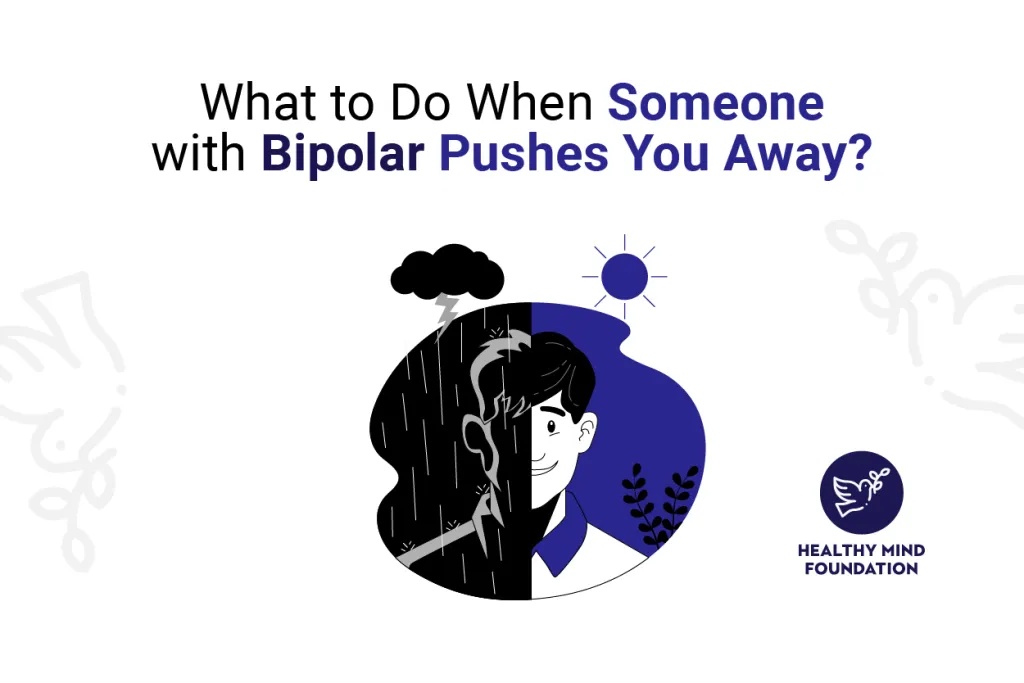Introduction
Living with someone who has bipolar disorder can be both rewarding and challenging. When your loved one pushes you away, it can be hurtful and confusing. However, it's essential to remember that their behavior is often a result of their condition rather than a reflection of their true feelings towards you. In this article, we'll explore seven effective strategies for dealing with a loved one with bipolar disorder when they push you away.
Understanding Bipolar Disorder
Before delving into strategies, it's crucial to understand bipolar disorder. Bipolar disorder is a mental health condition characterized by extreme mood swings that include emotional highs (mania or hypomania) and lows (depression). These mood swings can affect sleep, energy levels, judgment, behavior, and the ability to think clearly.
What Is Bipolar Disorder?
Bipolar disorder is a psychiatric condition characterized by extreme shifts in mood, energy, and activity levels.
Types of Bipolar Disorder
There are several types of bipolar disorder, including bipolar I, bipolar II, cyclothymic disorder, and other specified and unspecified bipolar and related disorders.
Symptoms of Bipolar Disorder
Symptoms of bipolar disorder can vary depending on the type and severity of the condition but may include mood swings, changes in sleep patterns, impulsivity, and difficulty concentrating.
Strategies for Dealing with Someone with Bipolar Disorder
-
Educate Yourself: Take the time to educate yourself about bipolar disorder. Understanding the symptoms, triggers, and treatment options can help you provide better support to your loved one.
-
Practice Patience: Dealing with mood swings can be challenging, but it's essential to remain patient and understanding. Remember that your loved one's behavior is often beyond their control.
-
Communicate Effectively: Maintain open and honest communication with your loved one. Encourage them to express their feelings and concerns, and listen actively without judgment.
-
Set Boundaries: Establish clear boundaries to protect your own well-being. Let your loved one know what behaviors are acceptable and unacceptable, and stick to these boundaries consistently.
-
Encourage Treatment: Encourage your loved one to seek professional help and adhere to their treatment plan. Offer to accompany them to therapy appointments or support groups if needed.
-
Practice Self-Care: Take care of your own mental and emotional well-being. Engage in activities that bring you joy and relaxation, and seek support from friends, family, or a therapist when needed.
-
Seek Support: Don't be afraid to seek support for yourself. Joining a support group for family members of individuals with bipolar disorder can provide valuable insight and coping strategies.
FAQs (Frequently Asked Questions)
-
How do you support someone with bipolar disorder? Supporting someone with bipolar disorder involves educating yourself about the condition, practicing patience, and maintaining open communication.
-
What triggers bipolar episodes? Bipolar episodes can be triggered by stress, major life changes, disruptions in sleep patterns, substance abuse, and other factors.
-
How do you help someone with bipolar who is pushing you away? When someone with bipolar disorder pushes you away, it's essential to respect their boundaries while still offering support and encouragement.
-
Can bipolar disorder be cured? Bipolar disorder is a chronic condition that requires lifelong management, but with proper treatment and support, individuals with bipolar disorder can lead fulfilling lives.
-
Is it normal for someone with bipolar disorder to push people away? Yes, pushing people away is a common behavior in individuals with bipolar disorder, especially during manic or depressive episodes.
-
What should you not say to someone with bipolar disorder? Avoid making insensitive or dismissive comments about their condition, minimizing their experiences, or suggesting that they can "just snap out of it."
Conclusion
Dealing with a loved one who has bipolar disorder can be challenging, but with patience, understanding, and support, it's possible to maintain healthy relationships and provide effective support. By implementing these strategies and seeking support when needed, you can navigate the ups and downs of bipolar disorder with compassion and resilience.
contact Healthy Mind foundation for support


No comments yet